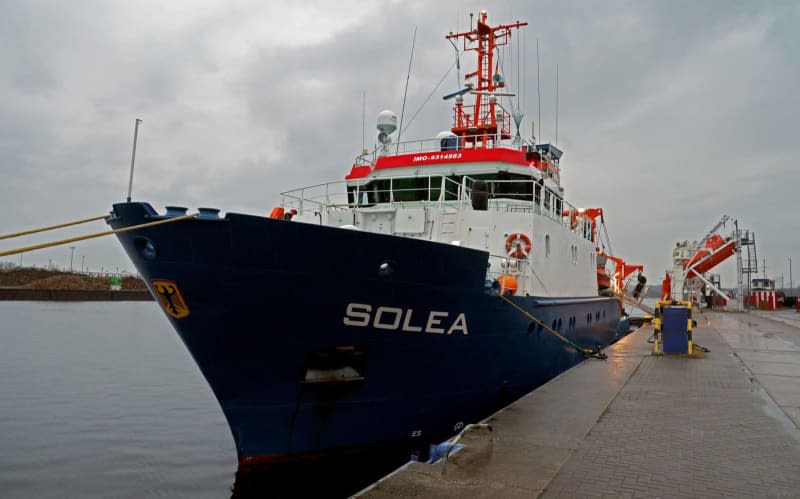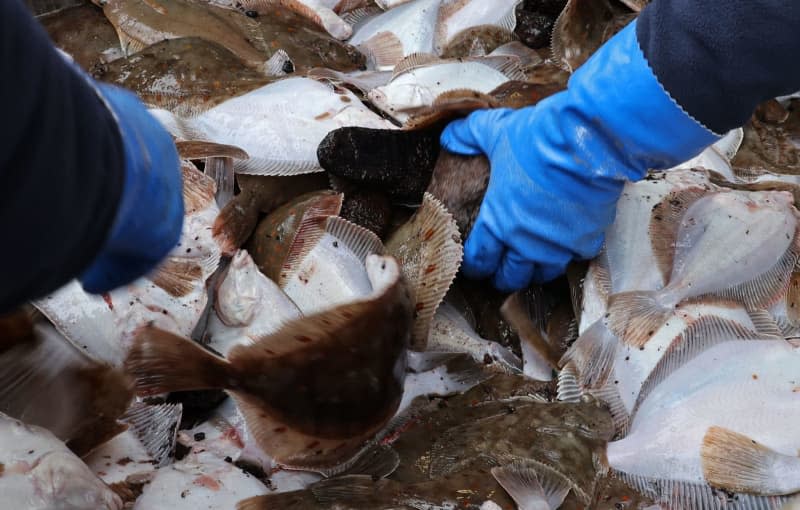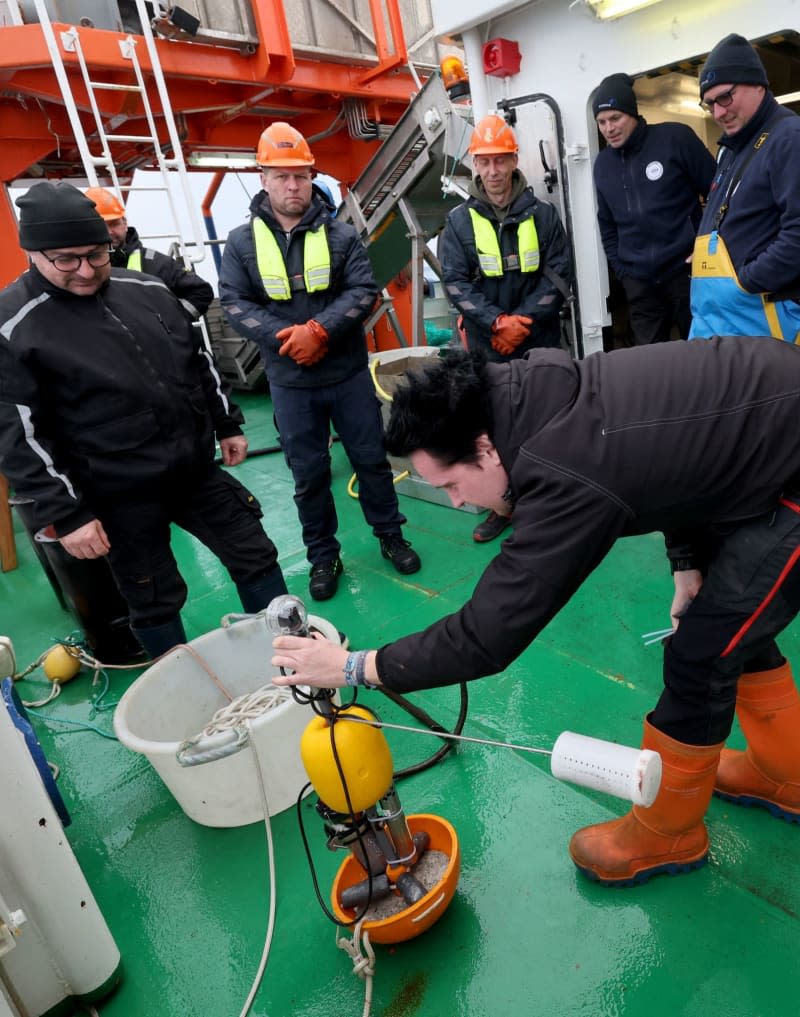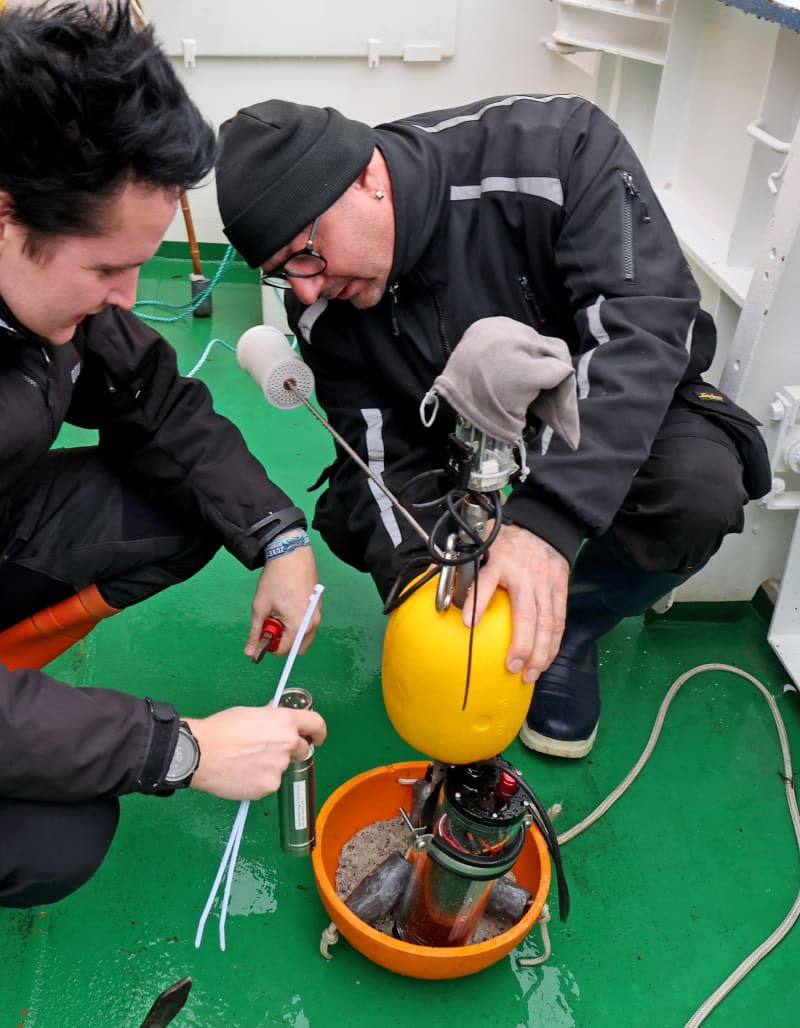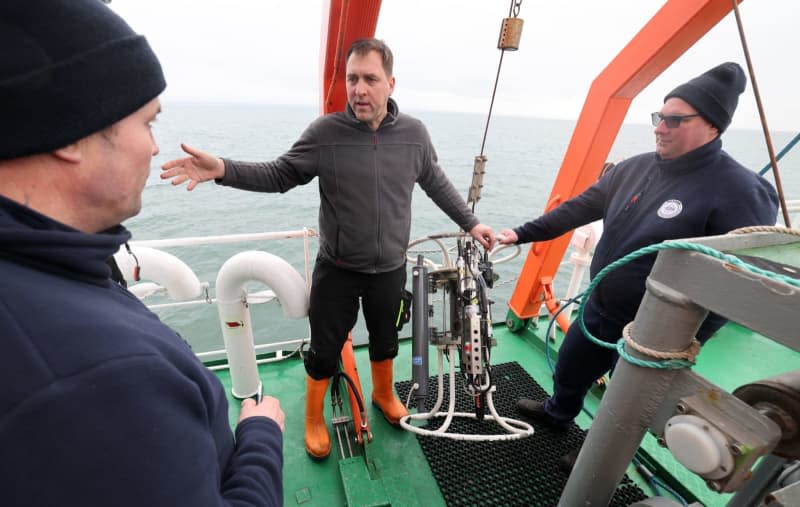Sea Rangers: How German fishermen are helping scientists
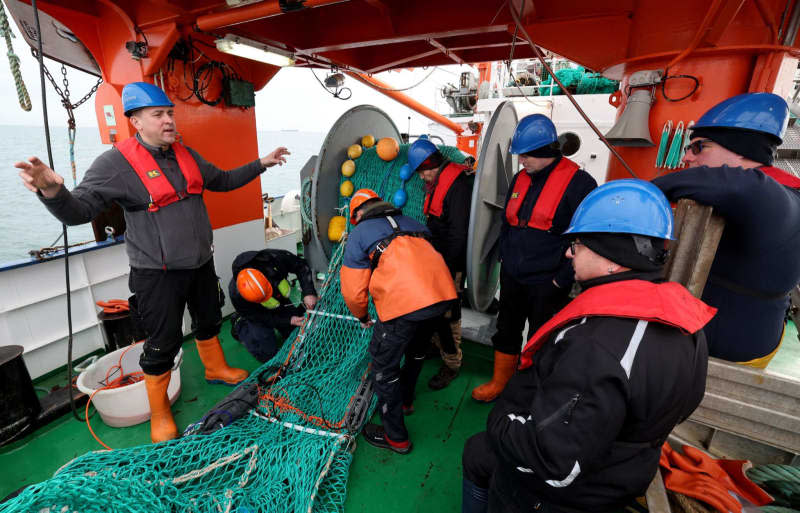
Mathias Labah normally catches fish in the Baltic Sea but today, the rope he is pulling out of the water a few kilometres off Germany's north coast is not a net filled with herring or cod, but a plastic cylinder about 30 centimetres long.
Labah carefully hoists the device onto the deck of the Solea research vessel, frees it from the water and reveals an innovative probe which could play a vital role in how the crisis-ridden coastal fishermen and women of northern Germany could earn more money and attract new recruits in the future.
The device measures oxygen, temperature, salinity and pressure and is part of an initiative that trains fishermen and women to assist scientists.
For those working on the Baltic Sea, the past few years have been challenging. Reduced catch limits have made it almost impossible for many professional fishermen and women to make a living from their trade. More and more are giving up.
Unlike the probe that researchers normally use on board the Solea, this one does not have to be lowered into the water using an extra winch and does not cost about €100,000 ($109,000).
The system costs about a tenth of that and can be operated by hand from fishing boats. The fishermen and women can also see the results themselves on a tablet.
Since last autumn, 11 fishermen from Germany's northern state of Mecklenburg-Vorpommern have been undergoing training to become specialists in fisheries and the marine environment.
As so-called sea rangers - a kind of forester of the sea - they are to assist scientists in addition to fishing and earn extra money in the process.
Labahn is one of them. "You can no longer make a living from the quota itself," says the 40-year-old, referring to the regulated catch volumes.
"That's why we're doing this Sea Ranger project, to generate some extra income and, of course, to get young people back into the profession." It would be a shame if it died out, he says.
Labahn is a fourth-generation fisherman, has two cutters and fishes off the island of Usedom - which is divided between Germany and Poland.
For Labahn and others like him, the Sea Ranger project represents a critical opportunity to sustain their way of life.
He is also concerned about the lack of oxygen that affects fish. But as a fisherman, he doesn't particularly enjoy sitting at a school desk.
The training program includes a diverse curriculum covering environmental monitoring, marine biology, law, public relations, project management as well as diversification and marketing strategies.
Participants also gain hands-on experience working alongside scientists, fostering a collaborative relationship that benefits both parties.
Last week, the fishermen were on the research vessels Alkor and Solea with scientists from German fisheries institutes and universities as part of their training.
They practised using the new probe, took and analysed fish samples and installed underwater cameras in nets.
Fisherman Karsten Höpfner describes the project as a last cry for help to politicians. He and his colleagues took a financial risk because they had no income for months and had to make advance payments for travel and accommodation costs.
He remains hopeful for the initiative's success and its potential to bridge the gap between traditional knowledge and scientific research.
Höpfner, 44, is a fifth-generation fisherman and his son has also just completed a fishing apprenticeship. Of the 150 tons of herring he was once allowed to fish each year, 2.7 tons remain.
Daniel Stepputtis from the Thünen Institute of Baltic Sea Fisheries, who looks after the fishermen on the Solea, also hopes that the rangers have a future. "What's the point of training if someone doesn't put their money where their mouth is and say 'why don't you do it'?"
The Sea Ranger project offers the opportunity to link aid with important research, says Stepputtis. According to him, large research vessels travel too infrequently and do not visit the important shallow areas. Scientists suspect that a lack of oxygen is one of the reasons why cod are doing so badly.
Stepputtis advocates for increased funding to address critical research gaps, such as understanding oxygen deficiency along the coast, which directly impacts fish populations.
He points to the state government of Mecklenburg-Vorpommern as a source of funding. A good quarter of a million euros could achieve a lot, says Stepputtis.
However, he adds that research institutes do not have that money included in their budgets.
Till Backhaus, the local minister of agriculture, says that the activities of the Sea Rangers must always be financed by the clients, or private sector, not just by the public sector.
However, he also highlighted the state's commitment: "The first training course is expected to be fully financed by the European Maritime, Fisheries and Aquaculture Fund as well as state funds."
Backhaus welcomes the project as a "highly topical and timely initiative for the profession." He says there is optimism for the project's expansion and long-term sustainability.
Looking ahead, the Sea Ranger initiative aims to replicate its success in other German regions along the North and Baltic Seas.
By making the profession more attractive and viable, they hope to secure a future for coastal fishermen and women and safeguard marine ecosystems.
The final exams for the inaugural class of sea rangers will be held in June on the island of Rügen.
